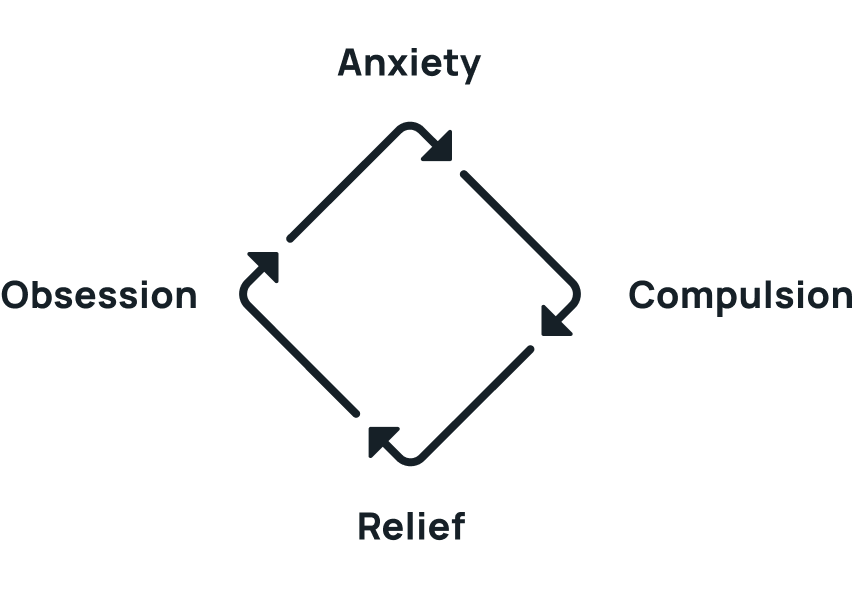WIP - Personal project
2020
Augmented reality exposure-response therapy for OCD.

A quick summary of OCD
Obsessive-Compulsive Disorder (OCD) is a chemical imbalance in the brain. Said imbalance can be triggered by a variety of external stimuli, but the result is almost always the same, the alert center in the brain is triggered and a flood of anxiety washes over the sufferer. The cause of the anxiety is known as an obsession.
Obsessive-Compulsive Disorder (OCD) is a chemical imbalance in the brain. Said imbalance can be triggered by a variety of external stimuli, but the result is almost always the same, the alert center in the brain is triggered and a flood of anxiety washes over the sufferer. The cause of the anxiety is known as an obsession.

The patient usually develops a compulsion; an irresistible urge to perform a certain action in order to counteract an on-going obsession. Giving into said compulsions will only make the condition worse.
Existing treatment methods
There are a handful of ways to treat obsessive-compulsive disorder, ranging from certain medications to specialized cognitive psychotherapy. A combination of the two is usually employed to yield the best result possible.
The most effective method for treating OCD at the moment is a form of cognitive-behavioral therapy called 'Exposure Response Therapy' or ERP for short. ERP is effectively immersing the patient in a situation that triggers their specific obsessions, and forcing them to confront the anxiety that arises from said obsession.
Some types of exposure-response therapy for OCD include a four-step process that has the potential to aid in re-wiring the brain chemistry to prevent anxiety spikes in the future.
The four steps of this process are as follows...
While this four-step process may work for some cases of the disease, it is not the most effective for certain types involving physical compulsions. Physical compulsions add an extra layer to the puzzle.
Improving treatment with new technology
While existing treatment methods of combining exposure response therapy with SSRI medication can be effective, I believe immersing a person in a virtual space to confront their obsessions head-on could make treatment for some forms of OCD more effective.
This is when I came up with the idea of Vexa.
This project is ongoing, check back later for updates!
This case study is still under construction, check back later for the full shebang!